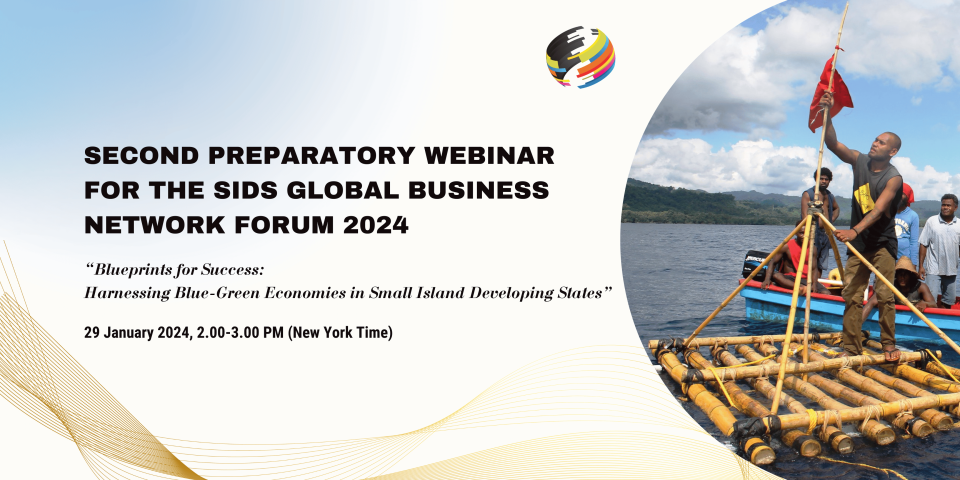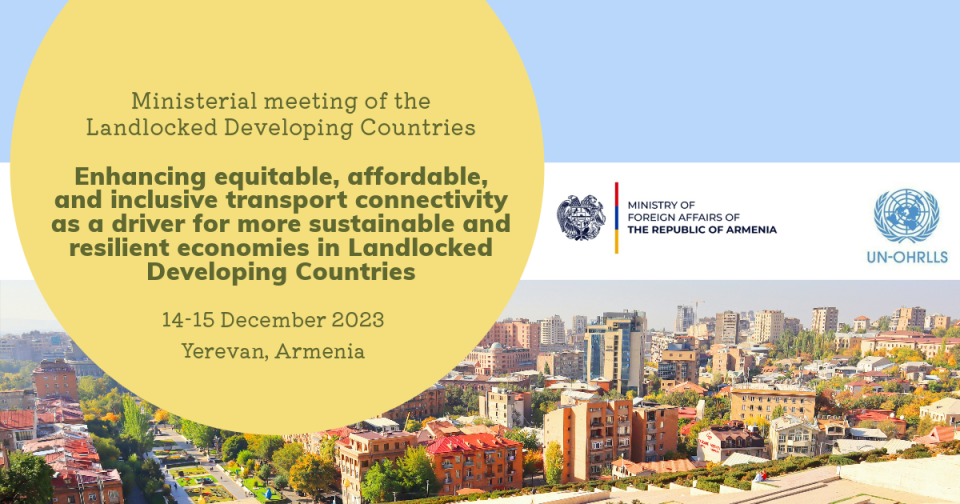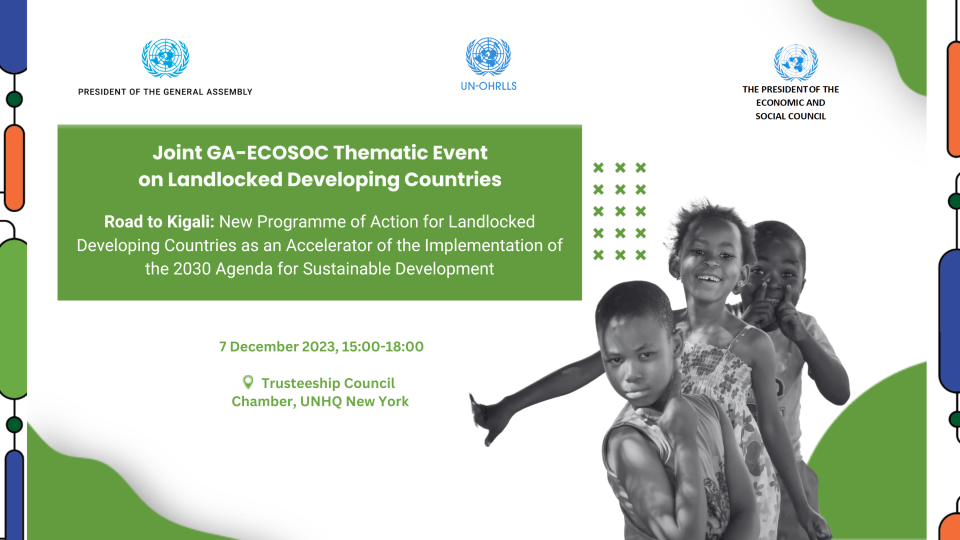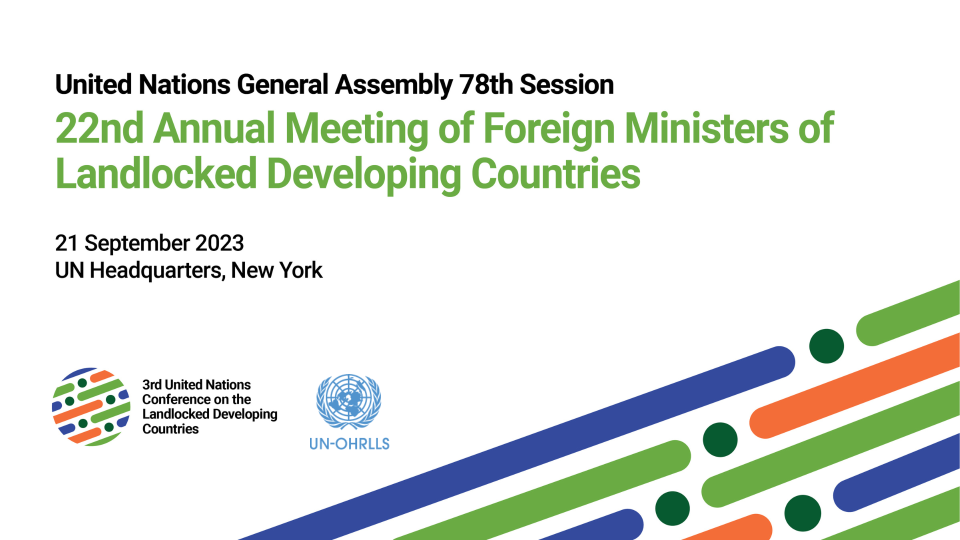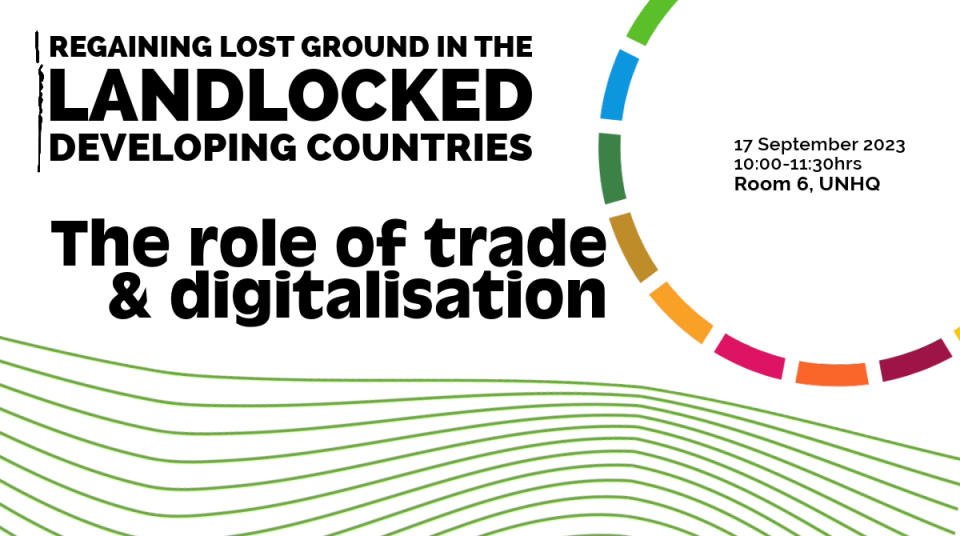High-level Expert Group Meeting on Online University or Equivalent Platform for STEM Education for the Least Developed Countries (LDCs)
Background
The Least Developed Countries (LDCs) face significant challenges in providing quality inclusive education, particularly at the higher education level. With only five years remaining to achieve Sustainable Development Goal 4 (SDG4) on quality education, LDCs are falling behind its targets. With a rapidly growing working-age population expected to double from 610 million in 2020 to 1.2 billion by 2050, LDCs urgently need to expand access to affordable technical, vocational, and higher education to leverage their demographic dividend and accelerate sustainable development.
Higher education, especially in Science, Technology, Engineering, and Mathematics (STEM), is crucial for LDCs to drive socioeconomic development and catch up with more advanced economies. However, LDCs are falling behind in this area. The gross tertiary enrollment rate in LDCs is just 11%, far below the global average of 40%. Only 21.7% of LDC graduates were in STEM fields in 2022, compared to 41% in China and 36% in Germany.
These statistics underscore the urgent need for LDCs to invest in and expand their higher education systems, particularly in STEM fields, to foster innovation, boost economic growth, and improve their global competitiveness.
The Doha Programme of Action for the Least Developed Countries (DPOA), A/Res/76/279, committed to undertaking actions to leverage the power of science, technology and innovation, as well as the opportunities o7ered by the millions of the young people in the LDCs to accelerate structural transformation and graduation out of LDC status. The Programme of Action also sets a target to undertake feasibility studies to explore the possibility of establishing an online university or other equivalent platforms for least developed countries.
To address the urgent need for expanded higher education access in LDCs, particularly in STEM fields, a robust virtual network of educational institutions within and beyond LDCs is crucial. This network should aim to serve the rapidly growing working-age population in LDCs. An integrated online platform could help overcome structural barriers to higher education access in STEM and assist universities and higher education institutions in LDCs in several keyways.
Meeting Objectives
With a view to implementing paragraph 52 of the DPOA, this two-day Meeting will explore the possibility of establishing an online university or an equivalent platform to support online graduate and post-graduate university-level STEM education in LDCs.
This important initiative is organized through the generous financial support of the Government of Qatar.
Documents
Presentations
High-Level Opening Session
- Prof. Edeltraud Günther, Director, UN University-FLORES
- Mr. Shai Reshef, President, University of the People
- Dr. Liu Dejian, Founder, Chairman of the Board, and Executive Director of NetDragon Websoft
- Prof. Asha Sigh Kanwar, Chair of the governing Board, UNESCO- Institute for Information Technologies in Education (IITE)
- Dr. Seydina M. Ndiaye, Program Director, Virtual University of Senegal
- Mr. Talal Abdulaziz M. H. Al-naama, Permenant Mission of the State of Qatar to the UN
Session 2: Policy Support and Governance Frameworks
- H.E. Mr. Salahuddin Noman Chowdhury, Permanent Representative of Bangladesh to the United Nations
- Prof. Romeela Mohee, Commissioner, Higher Education Commission, Mauritius
- Prof. Martin Weller, Emeritus Professor, Educational Technology at the Open University
- Prof. Ronghuai Huang, Co-Dean, Smart Learning Institute of Beijing Normal University
Session 3: Ensuring Access for the Poorest and Most Vulnerable Populations and Promoting Gender Balance
- H.E. Mrs. Agnes Mary Chimbiri Molande, Permanent Representative of Malawi to the United Nations
- Ms. Justine Sass, Chief of the Section of Education for Inclusion and Gender Equality, UNESCO
Session 4: Curriculum Development, Global Recognition and Accreditation
- Mr. Shai Reshef, President, University for the People
- Ms. Trine Jensen, Manager of HE & Digital Transformation, Publication and Events, International Association of Universities (IAU)
- Dr. Noah Sobe, Chief of Section for Higher Education, UNESCO
Session 5: Creating Virtual Networks of Educational Institutions
- Prof. Edeltraud Günther, Director, UN University-FLORES
- H.E. Mr. Lamin B. Dibba, Permanent Representative of The Gambia to the United Nations
- Prof. Bolanle Akeredolu-Ale, Vice Rector, Pan African University, Cameroon
- Prof. James Agajo, Professor, Federal University of Technology Minna, Nigeria
Session 6: Achieving Scale and Sustainability
- H.E. Mr. Tapugao Falefou, Permanent Representative of Tuvalu to the United Nations
- Prof. Bakri Osman Saeed, President, Association of African Universities (AAU)
Session 7: Development of Roadmap and Options for Presentation
Closing Session: Briefing to Member States – Presentation on the Findings of the EGM
- H.E. Mr. Ahmet Yıldız, Permanent Representative of Türkiye to the United Nations
- Slideshow of Findings from the High-level Expert Group Meeting
- A.I. Video of Findings from the High-level Expert Group Meeting



